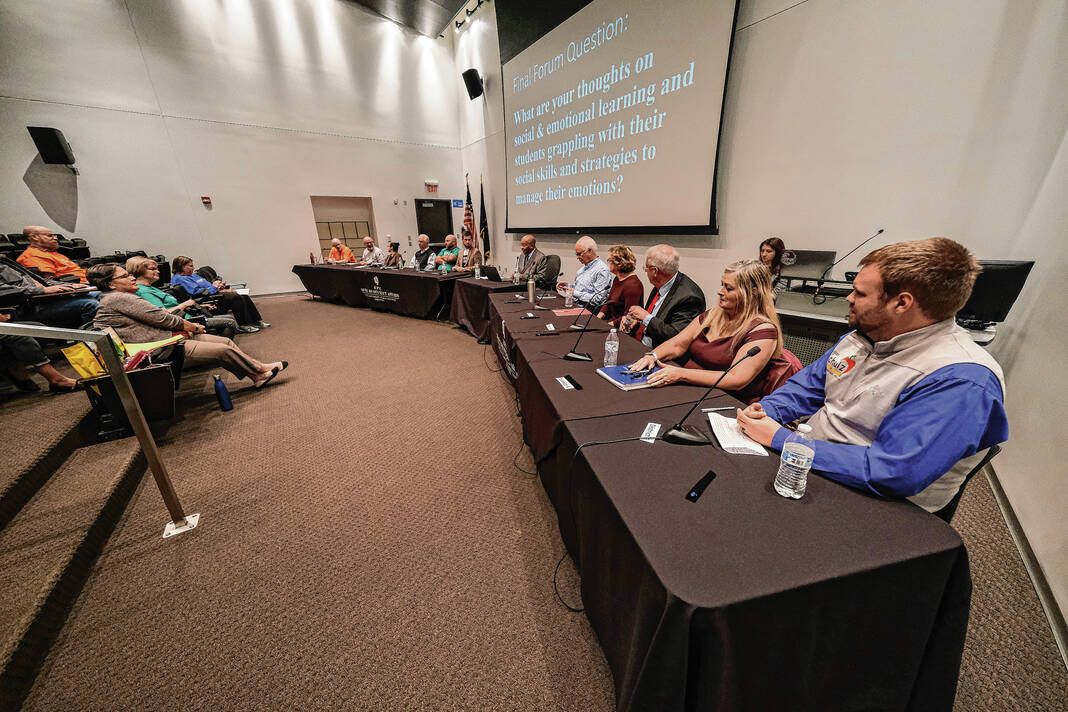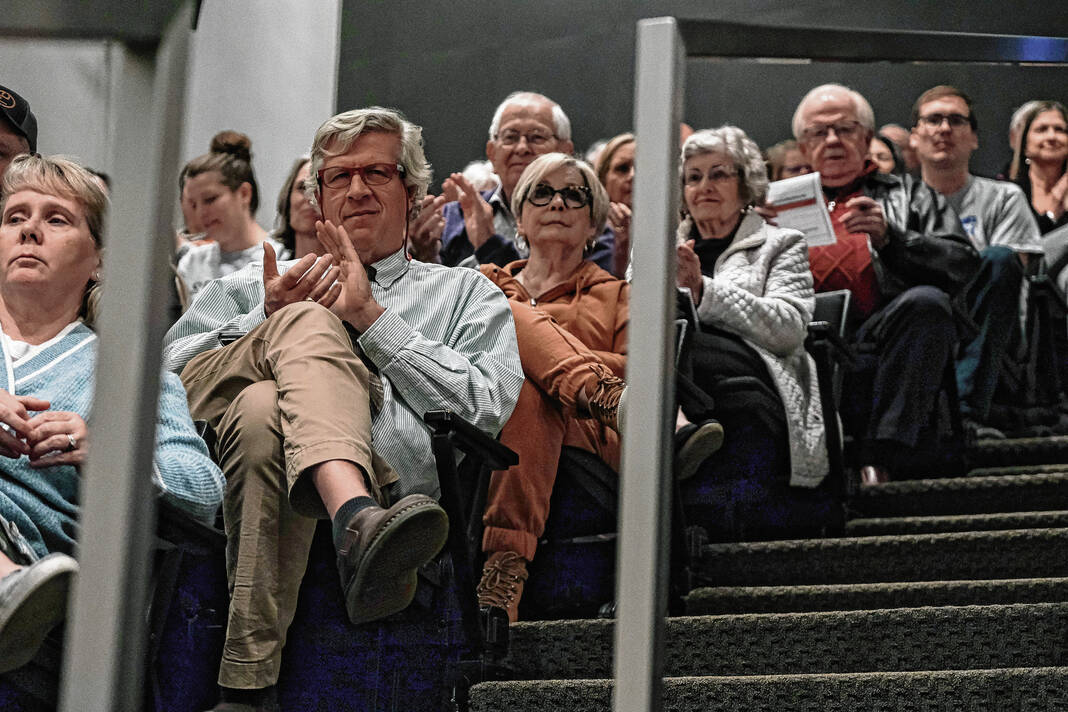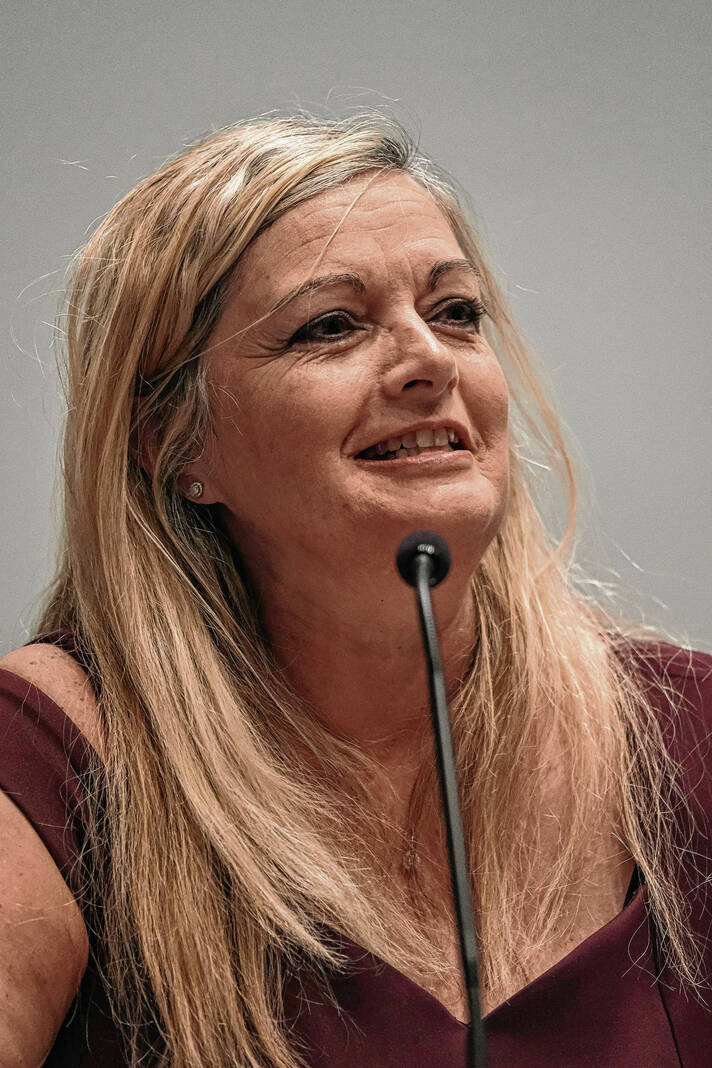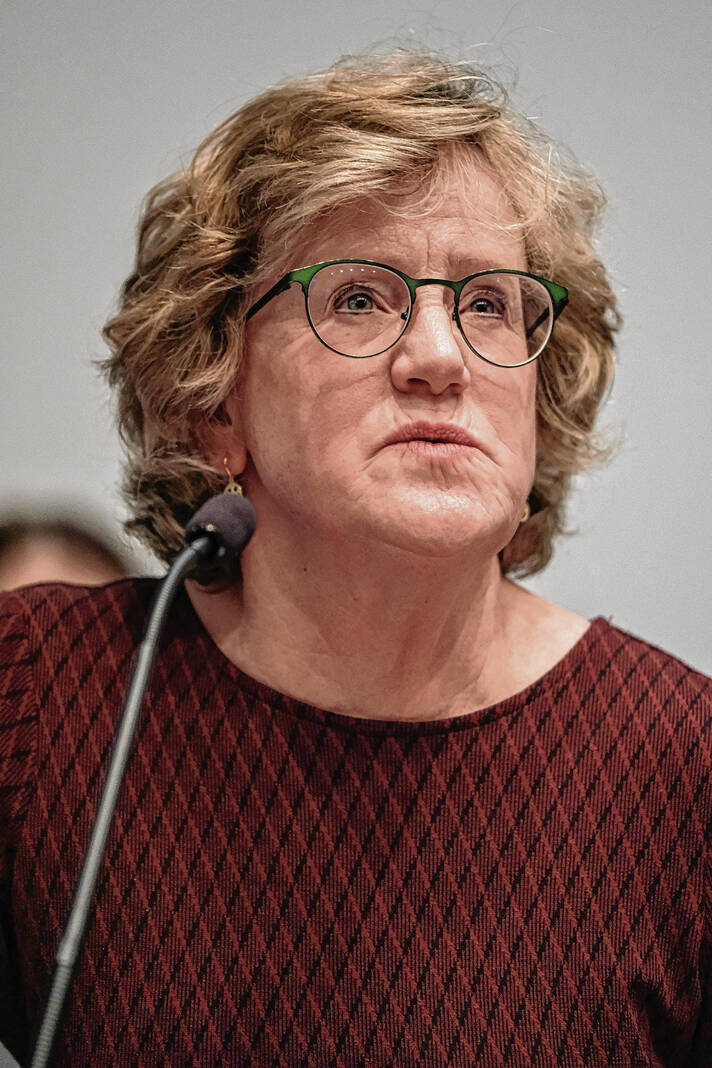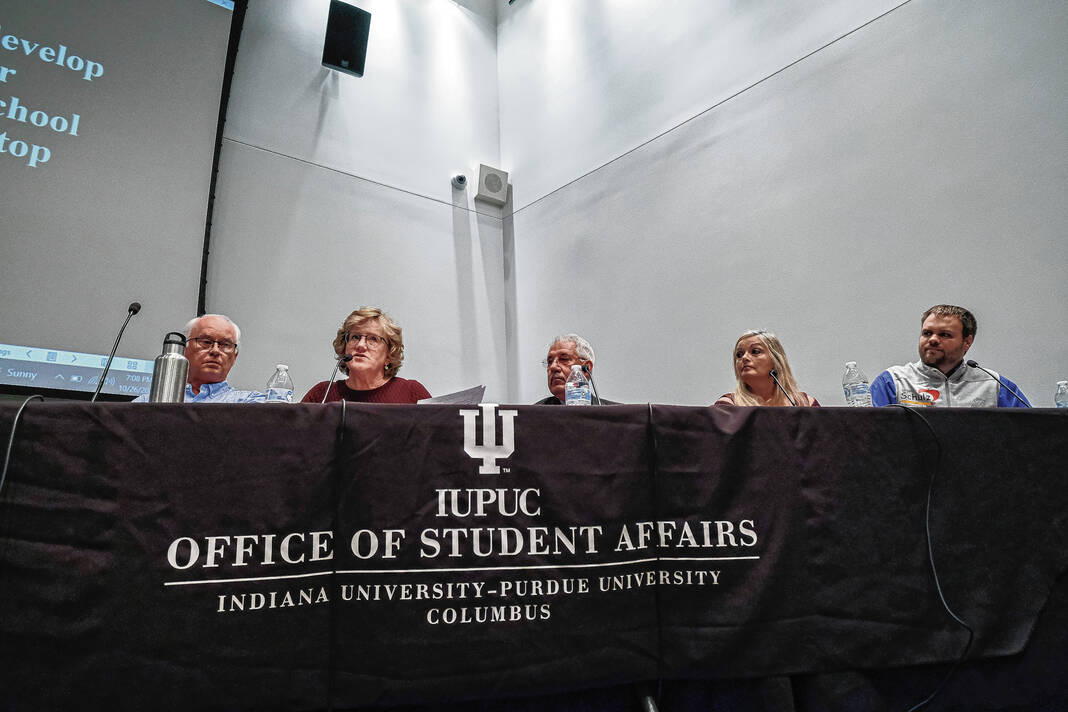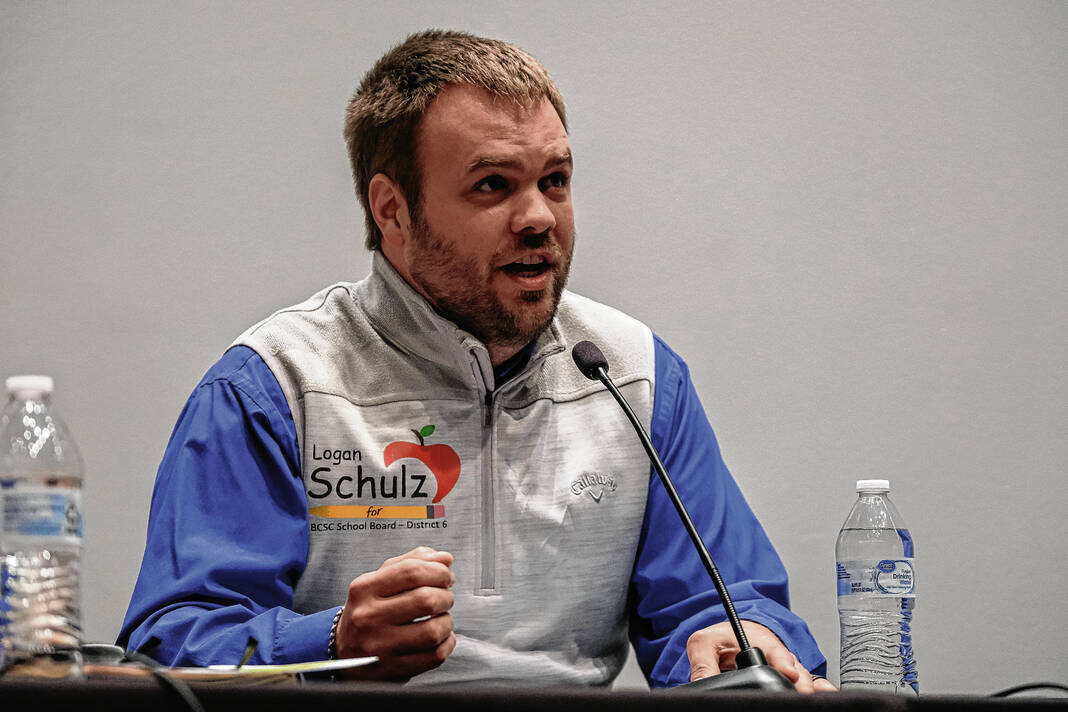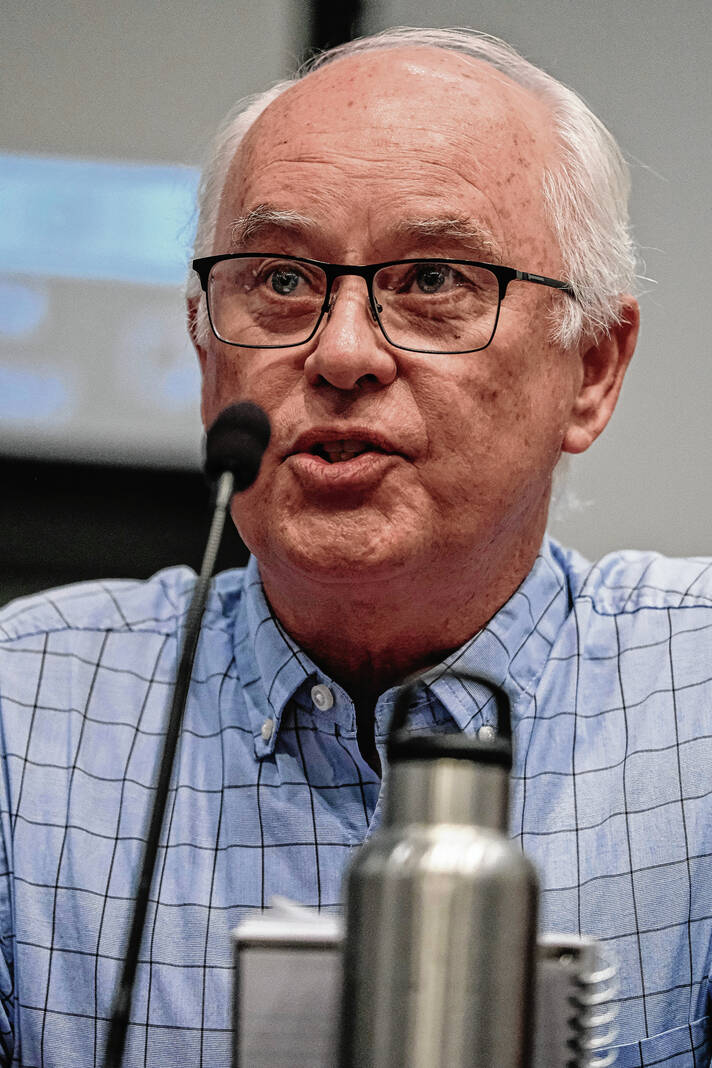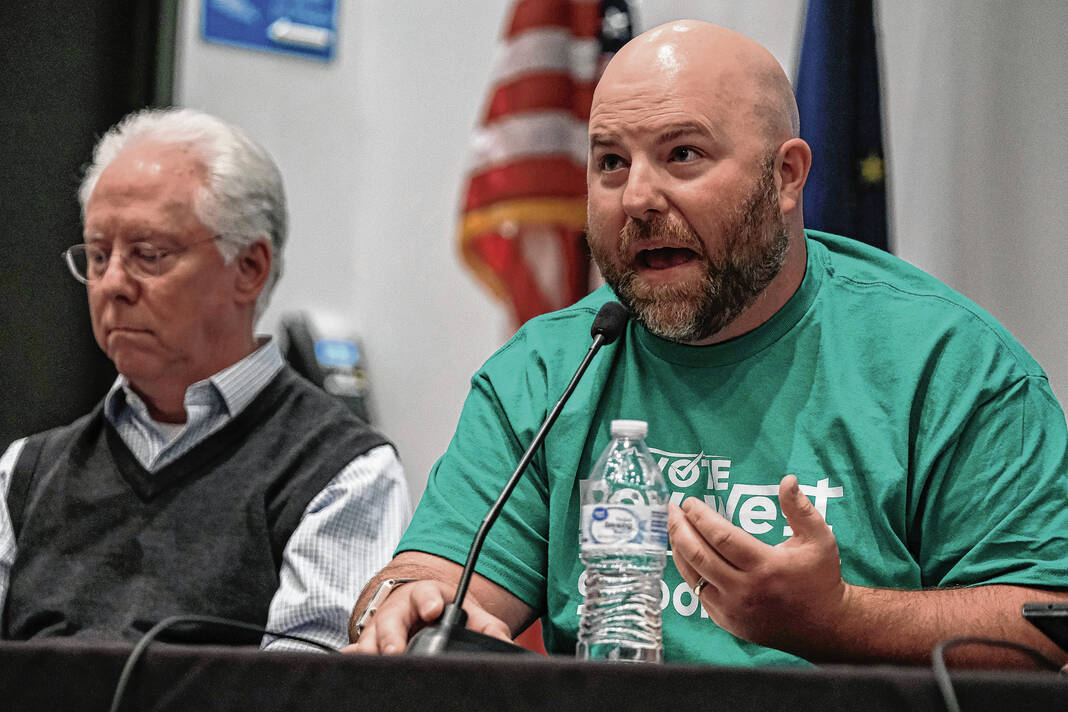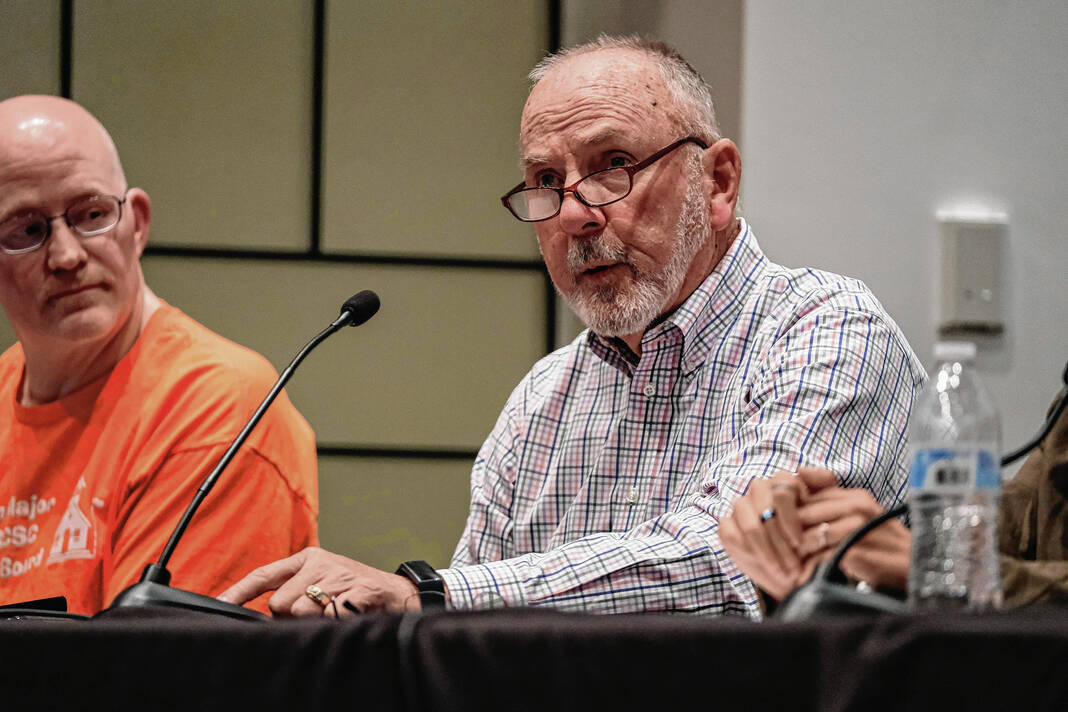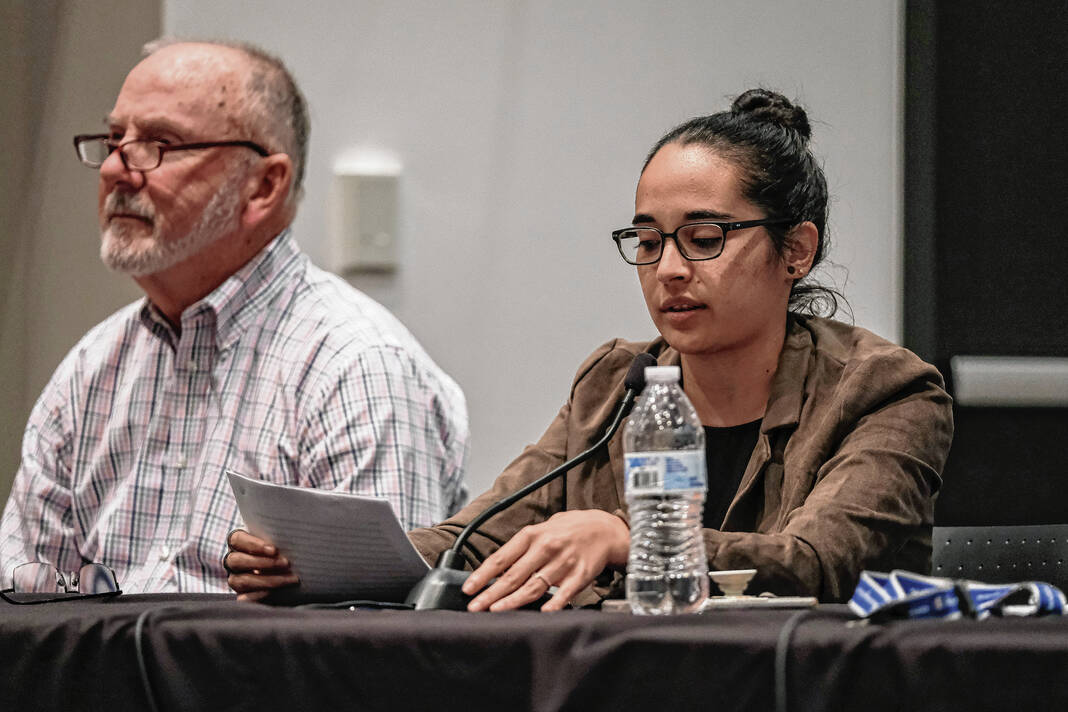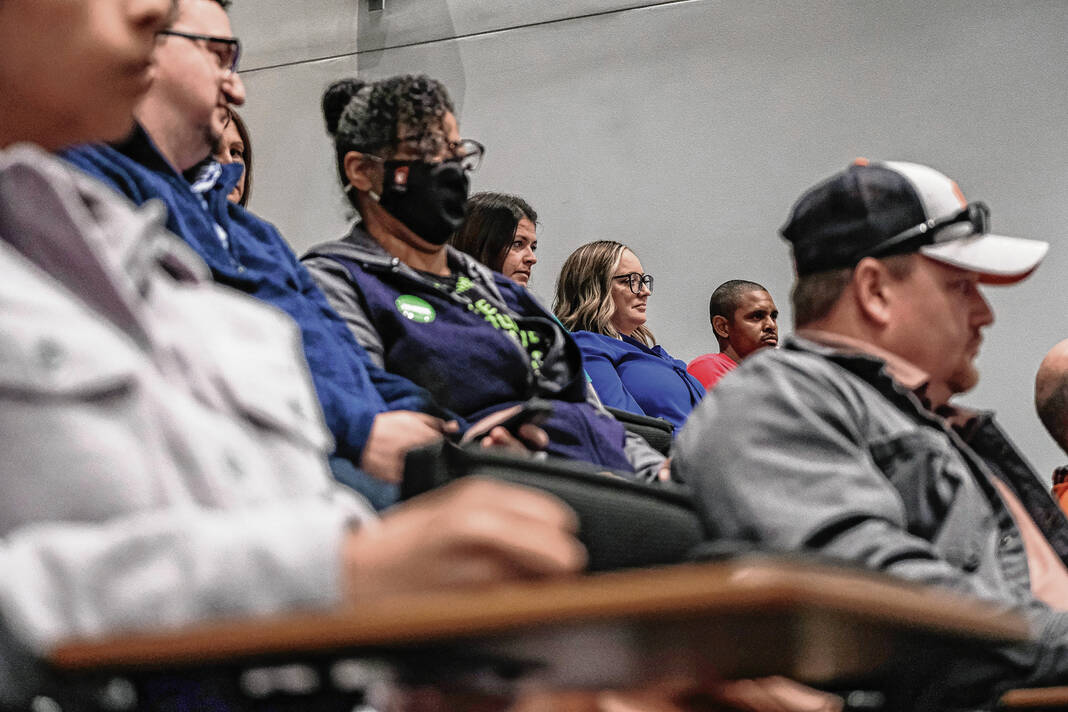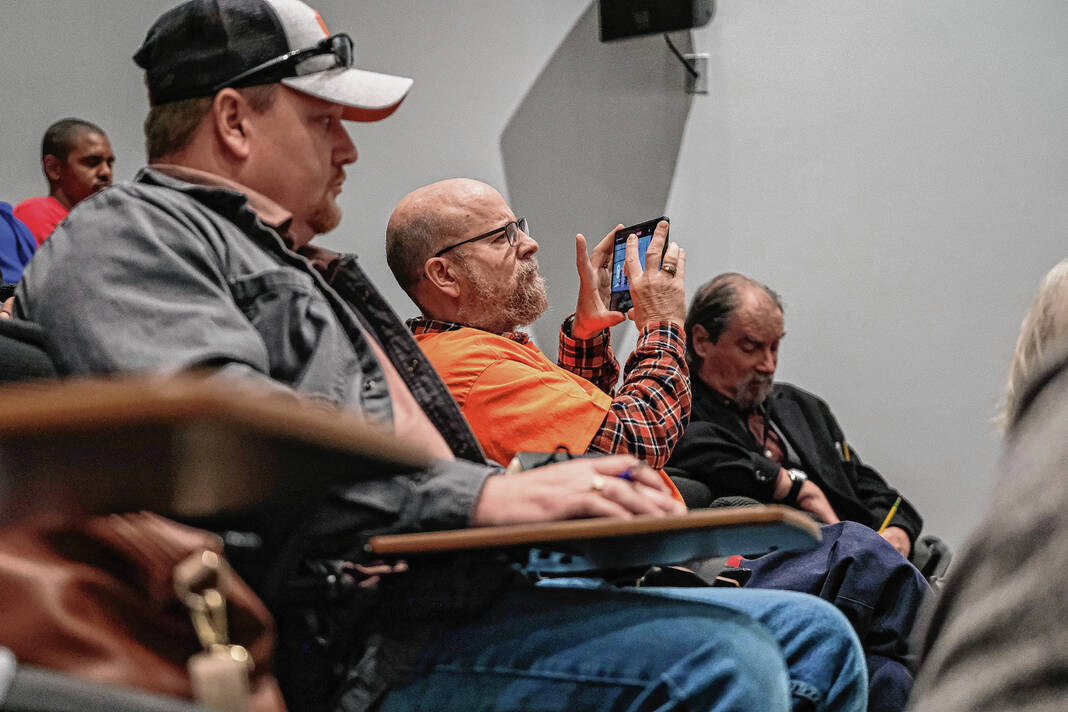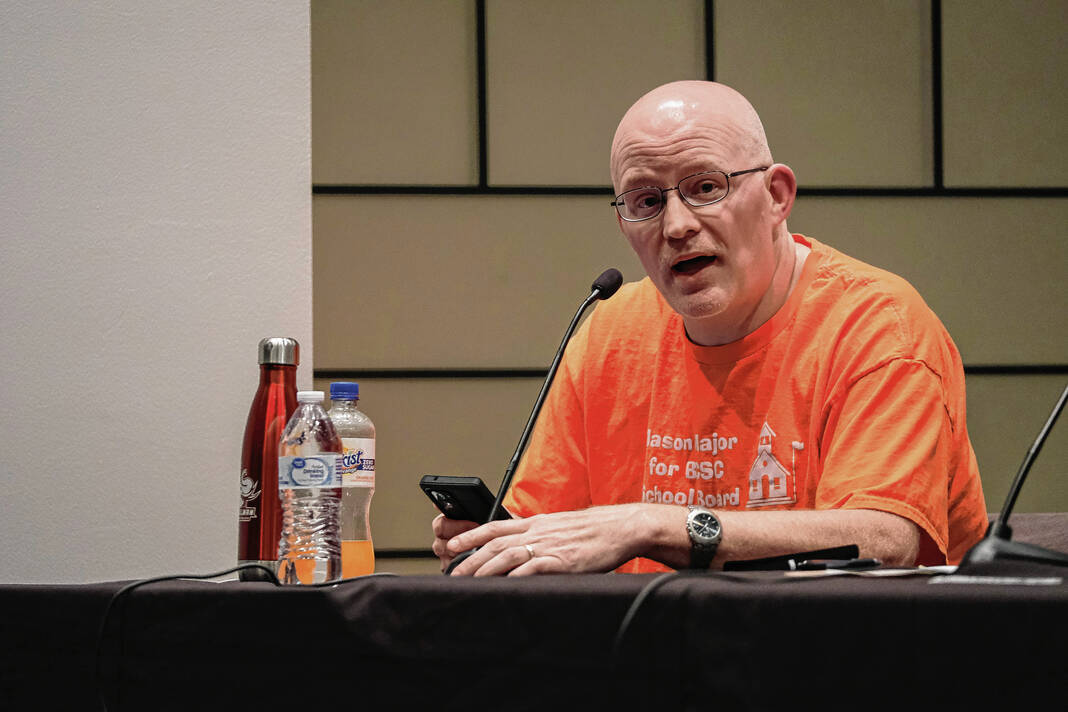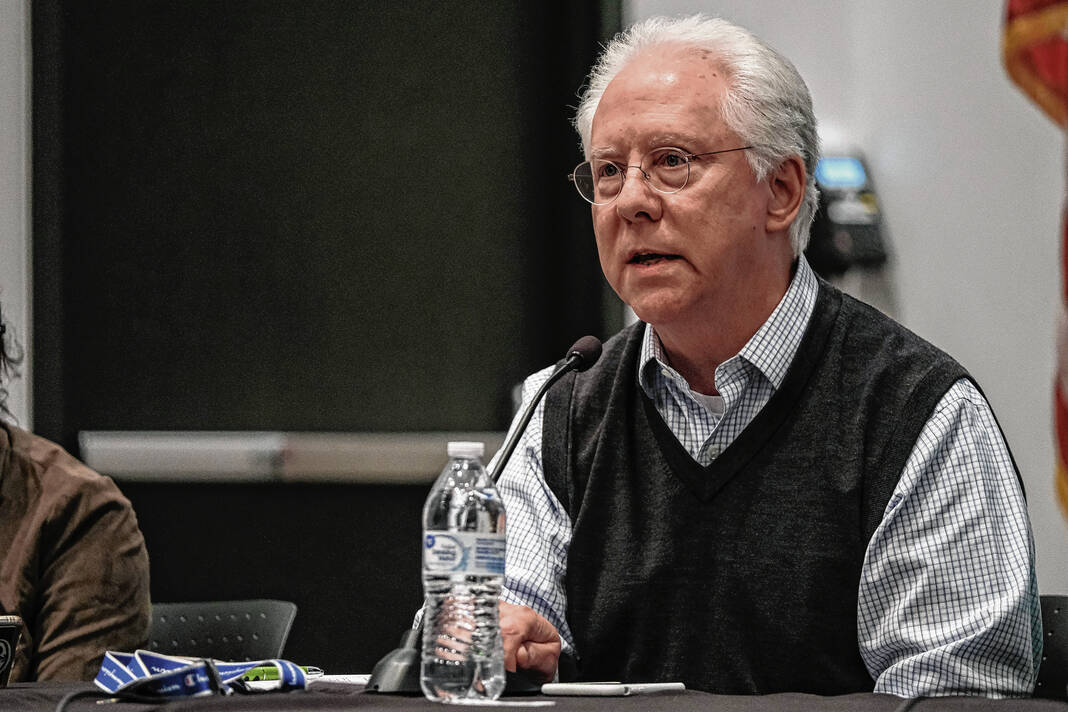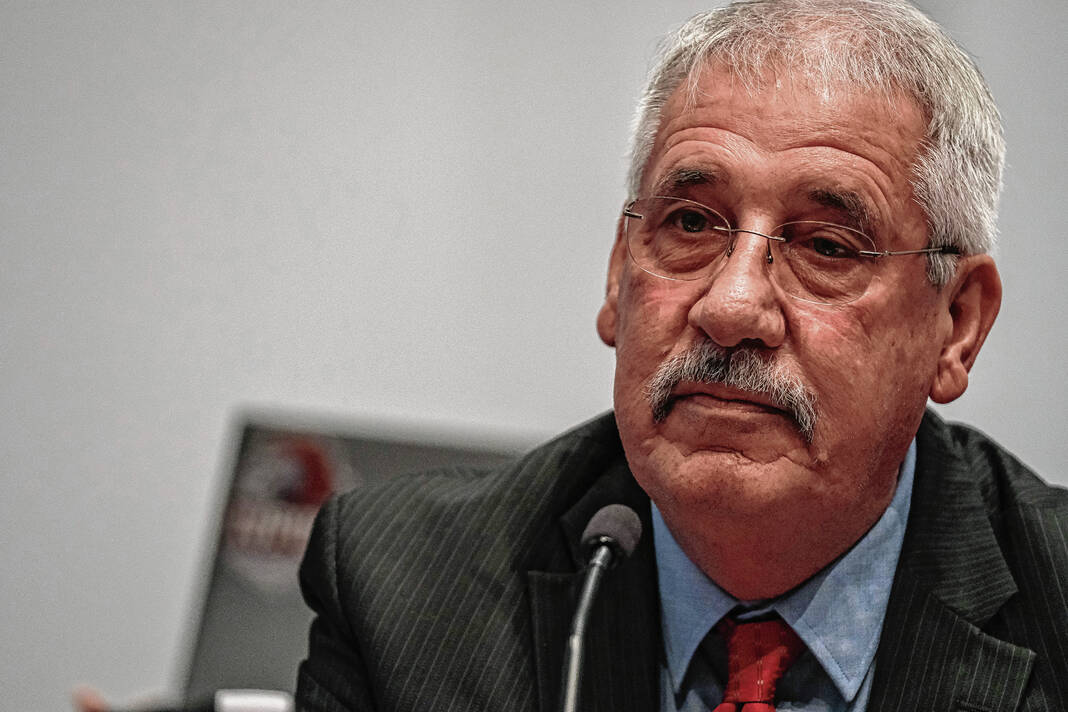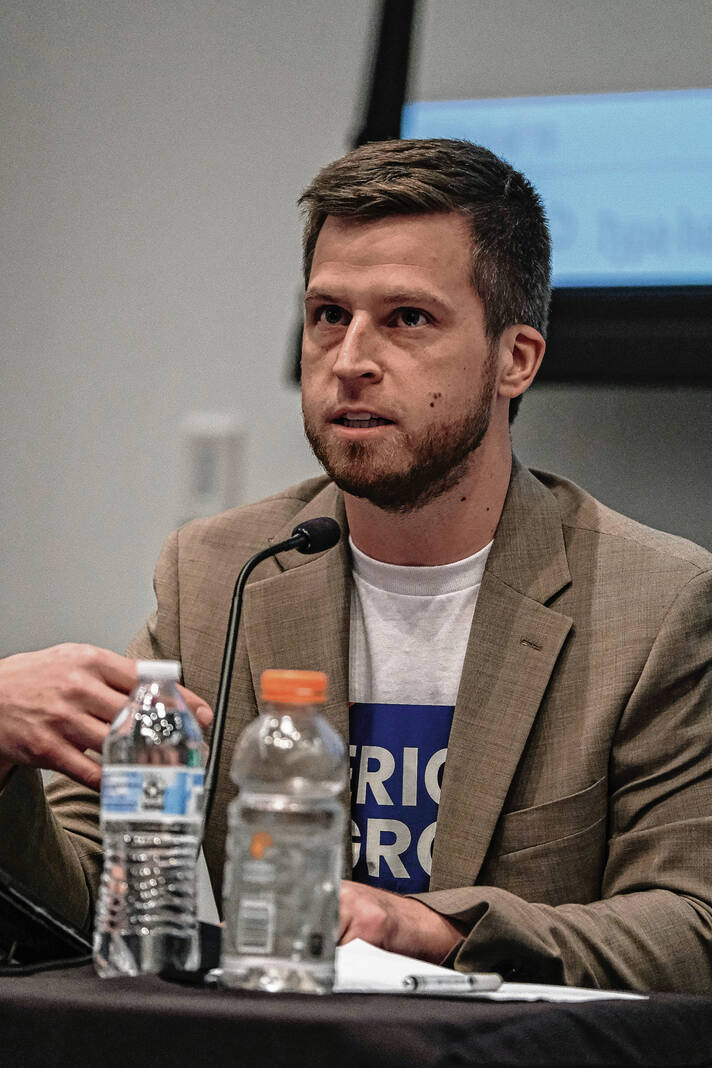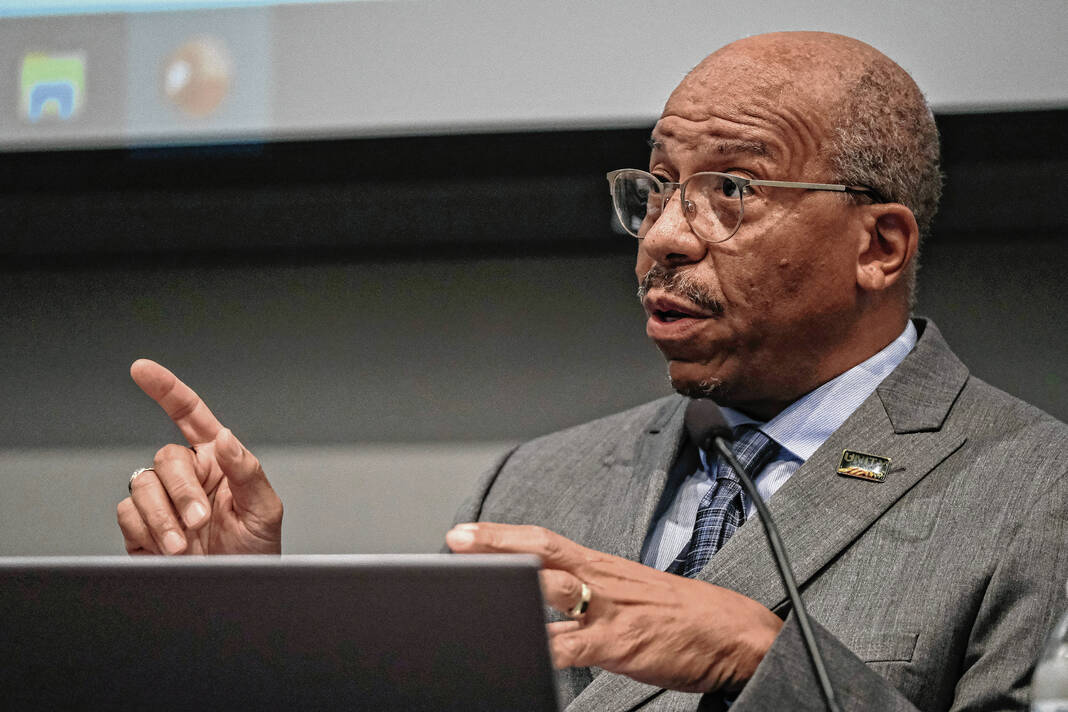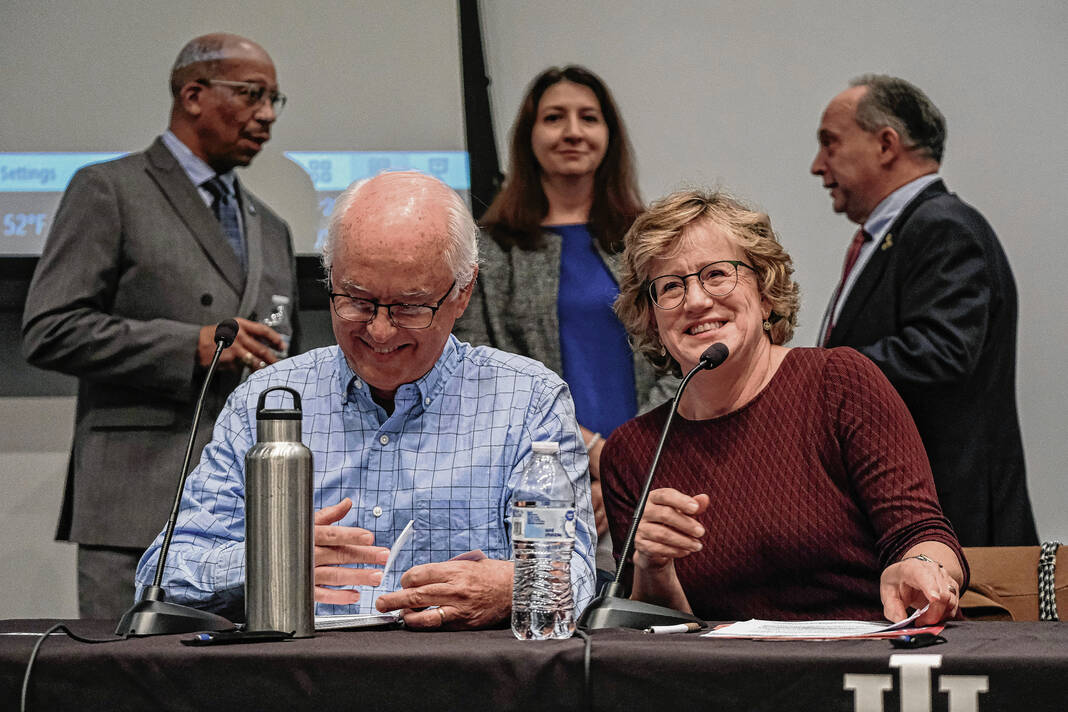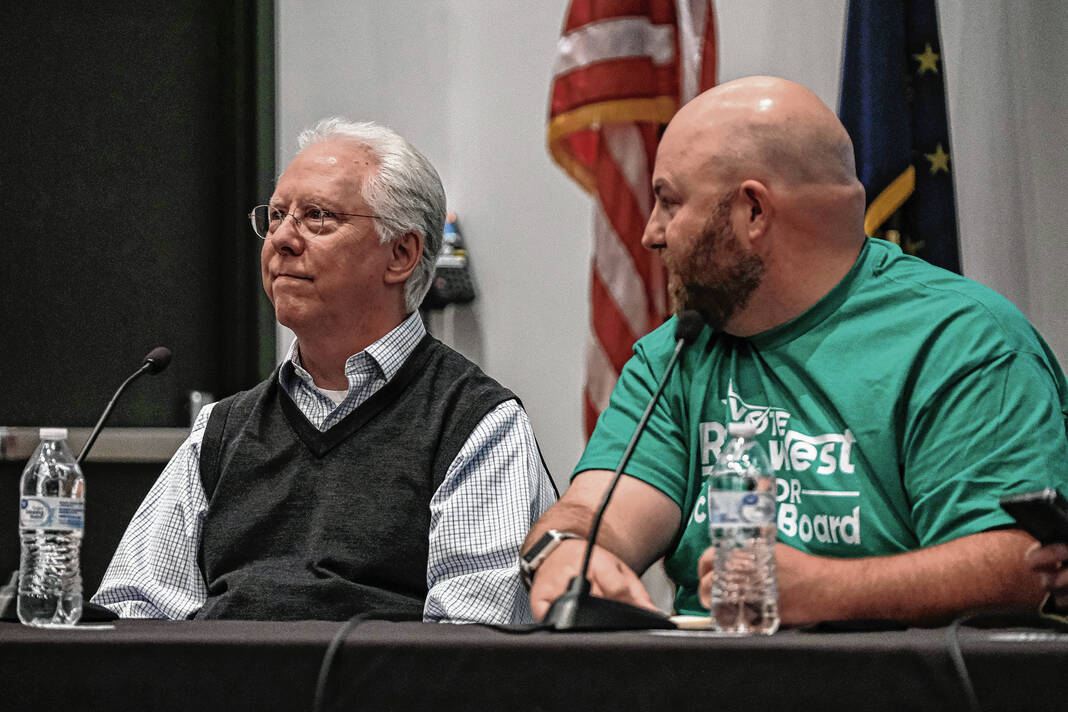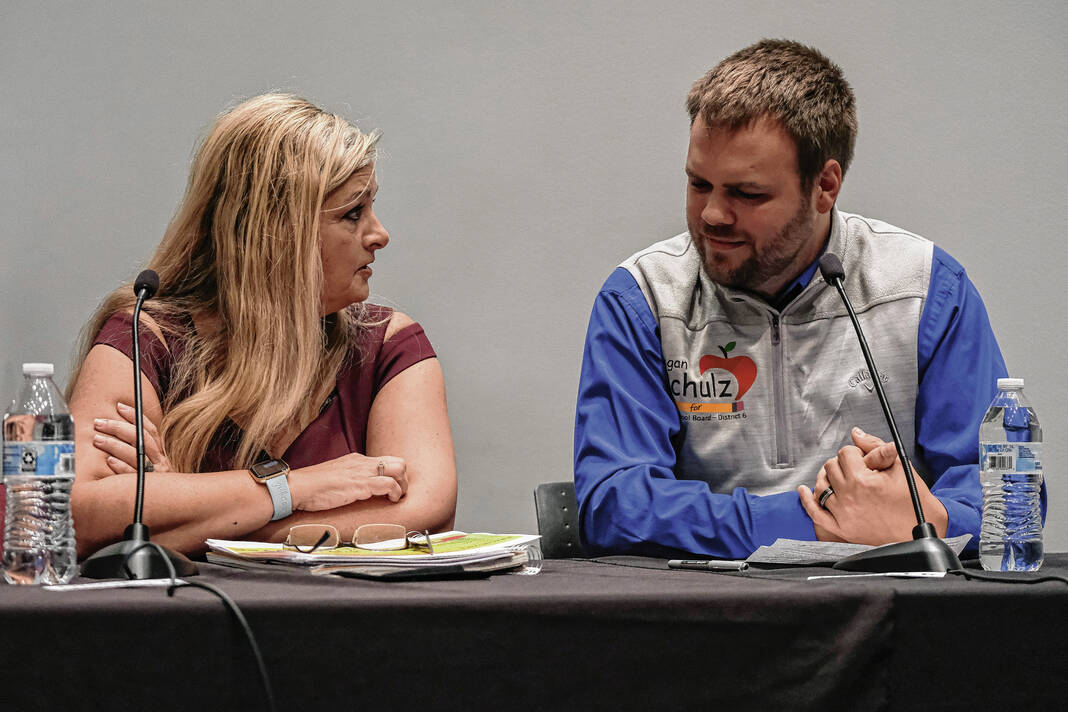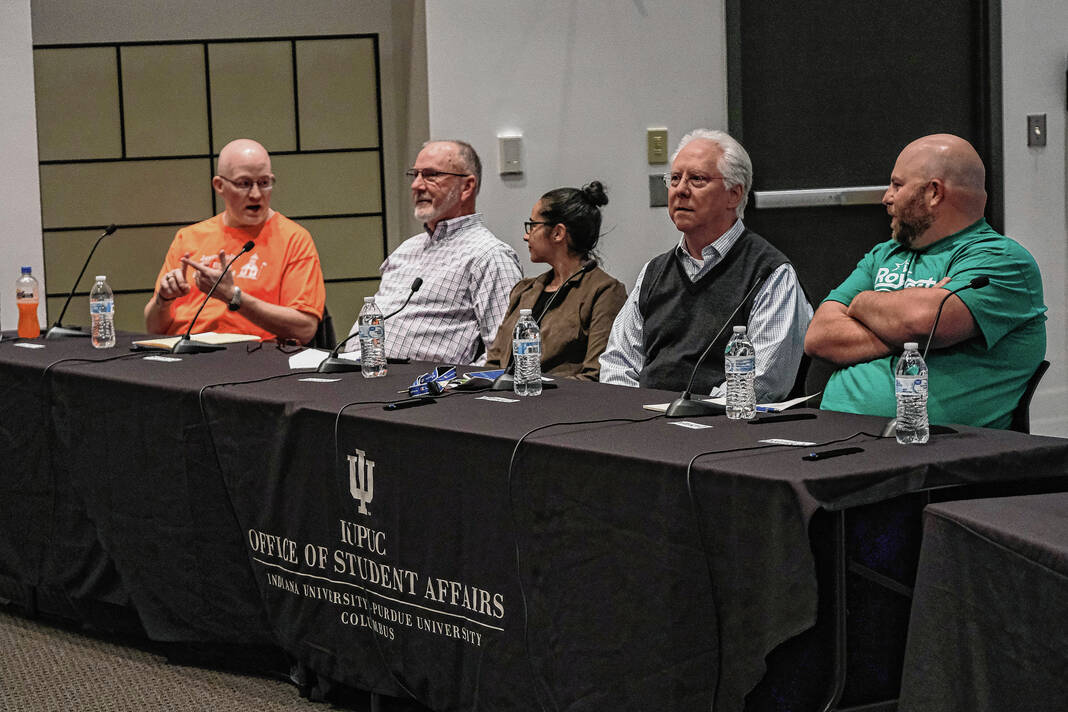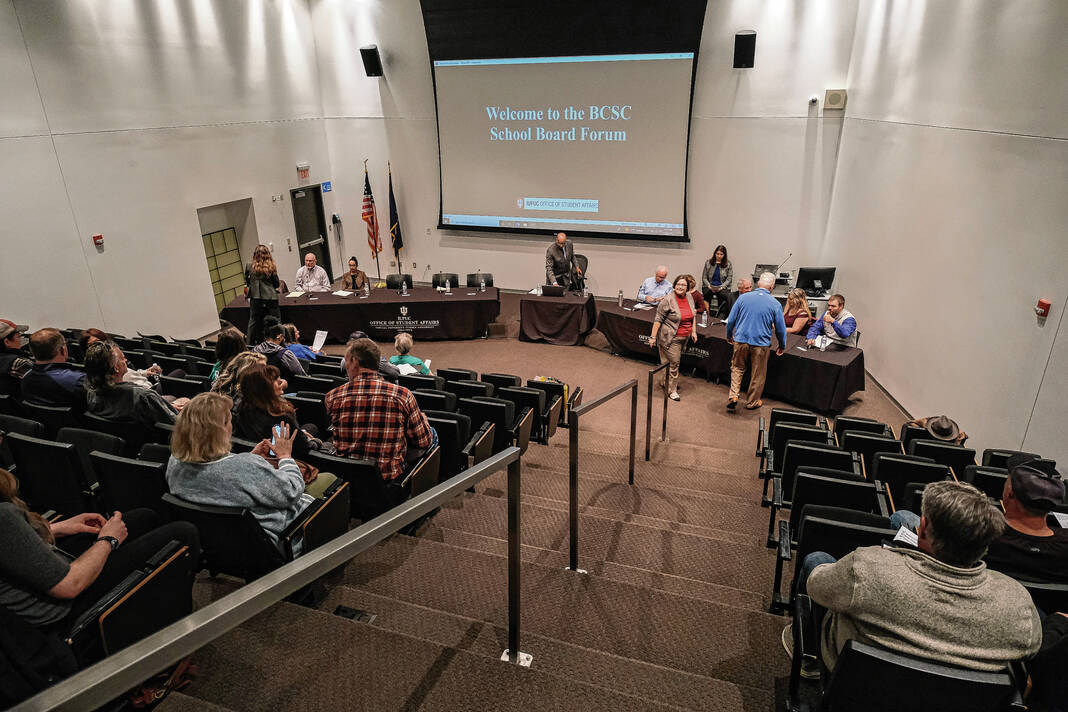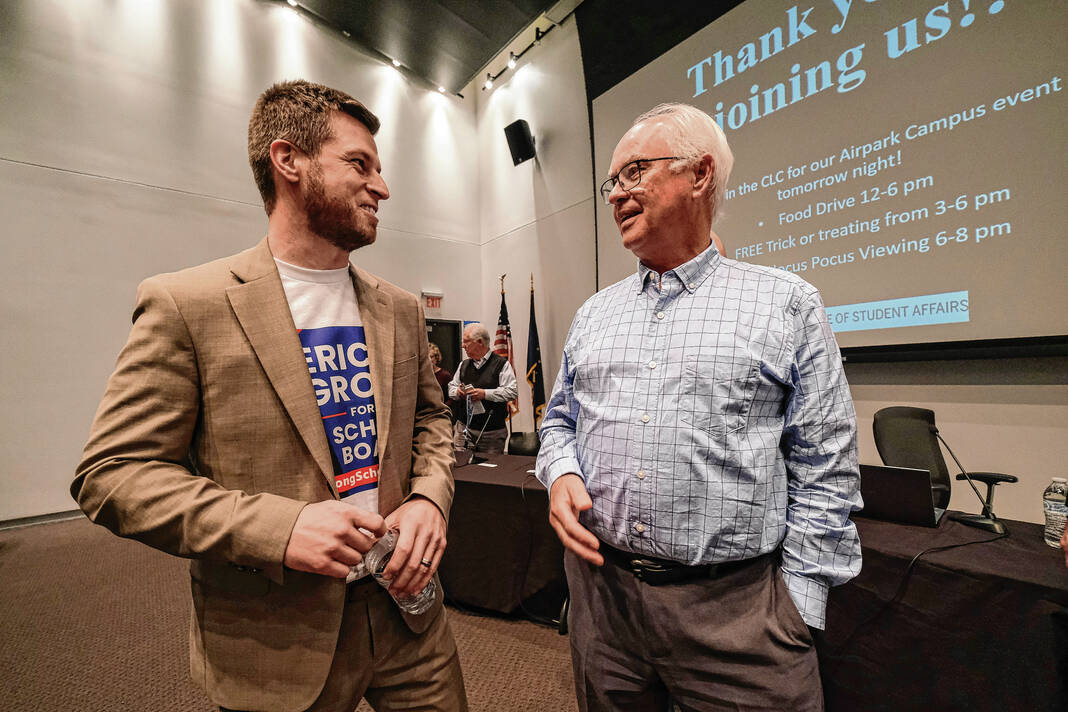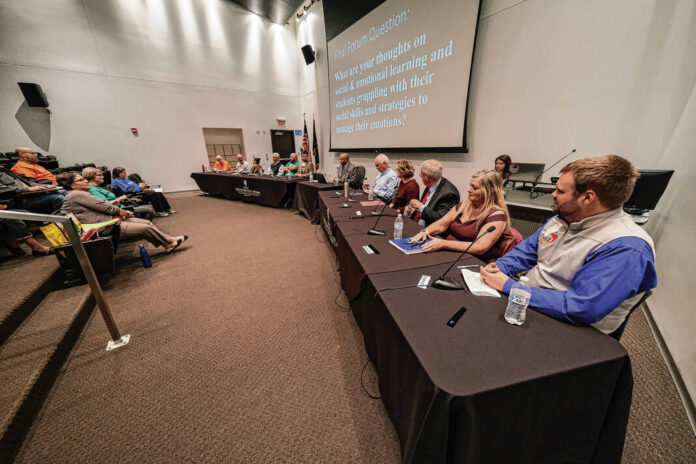
Mike Wolanin | The Republic Bartholomew Consolidated School Corp. school board candidates participate in a candidate forum by the IUPUC Office of Student Affairs at the Columbus Learning Center in Columbus, Ind., Wednesday, Oct. 16, 2022.
Teacher pay, social emotional learning and censorship were among topics discussed during a Bartholomew Consolidated School Corp. board candidate forum hosted by IUPUC’s Office of Student Affairs. All 11 candidates on the Nov. 8 ballot attended and talked before an audience of about 150 people at the Columbus Learning Center.
IUPUC officials said that they hope to post an audio recording of the forum at iupuc.edu/live by the end of the week, or Monday at the latest.
Jason Major, Anakarina Hurtado, and David Vincent are running for District 1. District 2 incumbent Rich Stenner is opposed by Roy West. Dale Nowlin and Eric Grow both seek the District 4 seat. Four candidates are running for District 6: incumbent Kathy Dayhoff-Dwyer, Mark Douglas, Cheryl Miles-Vieth and Logan Schulz.
Each candidate had 90 seconds to present his or her platform and was given the same amount of time to answer each question. There were four questions in total, including one that centered on censorship.
In response to a question about censorship in the classroom, Major, who was the final candidate to respond to the question, emphasized the importance of “age-appropriate” materials. He then read a sexually explicit passage from a book that he said is included in Columbus East High School’s library, though he did not provide its title.
“Is this acceptable in our schools?” he asked afterward.
Schulz and Grow similarly said library materials should be age appropriate. West said this should be true of books and topics that are taught in the classroom, though he added that he would listen thoughtfully to those who disagree with him.
Vincent, who’s running against Major, said that while he’s not for banning, he believes in providing age-appropriate materials to students. He then cited a story that Corrie Ten Boom, author of “The Hiding Place,” told about her father.
“He asked her to carry his heavy work bag,” said Vincent. “When she can’t because it’s too heavy, he says that it would be ‘a pretty poor father’ to expect his little girl to carry such a load. He says, ‘It’s the same way, Corrie, with knowledge. Some knowledge is too heavy for children. When you are older and stronger, you can bear it. For now, you must trust me to carry it for you.’”
Douglas said that schools need to focus on going “back to the basics” rather than on politics and that teaching should have a “good moral foundation.”
“We need to get that good moral base back in our schools where we are one nation under God,” he said. “And discipline in our schools. I know that the censorship thing is — it’s something that we have to deal with on an every day basis. But we need to hear from people. We need to hear what their decisions are, what they’re looking for. There’s a lot of controversial things in our school system that I don’t approve of. It should be back to reading, writing and arithmetic and history.”
Miles-Vieth, one of Douglas’ opponents and a former BCSC teacher, said that proposed legislation banning the promotion of certain topics — such as sex, race, ethnicity, religion or national origin — would have a chilling effect on teachers if passed and would affect their ability to teach subjects such as biology, history and health. She added that it would also affect their ability to answer questions from curious students.
“It (censorship) keeps tyrants in power,” said Miles-Vieth. “Neither the right nor the left of American politics should have the right to keep the information from others.”
Hurtado expressed a similar sentiment and said that conversation should be open so that students can develop critical thinking skills. Additionally, community members should trust teachers to follow state standards and pick age-appropriate topics. She also emphasized the importance of providing inclusive materials and added that there are processes in place for concerned parents to keep their own children from checking out specific books.
Education is about “teaching differences,” and it’s important to learn about diverse groups, said Dayhoff-Dwyer. She added that children should talk with their parents about these matters and about censorship itself.
“Hopefully between the parents and the schools and the kids, they can come to an understanding of what it is that they want to learn in school,” she concluded.
Fellow incumbent Stenner said, “Choices about materials, what’s appropriate for what age group, when and where do we make choices that might be viewed as censorship by some to shield or protect kids — in general, I believe decisions like this are best made closest to the students involved and closest to the classroom. I think we need to continue to let decisions like this be made by the students’ teachers, by their parents and by the principal of the building working together.”
Nowlin, a former BCSC teacher and occasional substitute, said that the Indiana Department of Education comes up with state standards. It is then up to schools and teachers to create curriculum based off these standards. He described certain bills proposed during the last legislative session as “micromanagement” of curriculum.
Parents who are concerned about what’s being taught should read the state standards and talk with their teacher and building principal if they have issues with local curriculum, said Nowlin.
Another question for school board candidates was whether they would support an increase in educator pay. While the general answer was “Yes” across the board, perspectives varied on the best way to improve teacher recruitment and retention.
Stenner said that the state needs to provide more resources to the school corporation so it can continue to improve pay and added that while the local referendum helped, there’s still more to be done.
His opponent, West, said that he would examine other funding sources before resorting to a tax increase. If it came down to that, he would support putting it on the ballot for the community to decide.
“I think our teachers are proud to teach here, and I think maybe sometimes we’re just potentially standing in their way,” West said. “Maybe they have ideas that we can get from them, and they can help us increase as far as schooling and grade point average. But we’re not communicating with them. We’re not going to the schools like we should. And we really need to use them, because they’re a valuable asset.”
Like Stenner, Miles-Vieth said that there’s an issue with state funding and emphasized that she doesn’t expect the teacher shortage to go away anytime soon.
“We are pretty much competing with every district in the country now,” she said. “Therefore, we need to find ways to be competitive.”
Her ideas included bonuses, cutting health care costs, decreasing the number of steps needed to get to a higher salary, allowing more part-time teaching and supporting BCSC’s current transition to teaching programs.
Douglas said that while he supports raises, each teacher should be evaluated individually on their work, and he would try to trim BCSC’s budget, given current burdens on taxpayers.
Incumbent Dayhoff-Dwyer said that she supported the last referendum and would do so again, as it comes down to the community’s choice and not her own. She added that she would also look at other ways to help teachers. While decreasing classroom sizes is one option, this could also present certain challenges.
Issues with teacher recruitment and retention are an ongoing conversation that should involve community members and parents in working to address the problem, said Dayhoff-Dwyer.
Schulz said that the school corporation should remove obstacles that keep “non-BCSC top talent” from wanting to come to the district, consider working environments and look at classroom sizes. He added that while signing bonuses might attract new hires, they don’t give people “a reason to stay.”
Additionally, BCSC should “break down” packages offered to STEM teachers vs. those who teach other subjects, as there is an issue with STEM teachers being poached by other industries, said Schulz.
Grow stated, “I think a new teacher should be walking into a highly esteemed position making something like $60,000 a year, and that’s honestly probably low. And I know that’s not currently feasible from the perspective of the school board and the budget we’re working with. I would bet that there is some room there already that we can make.”
He added that becoming a teacher should be a “highly competitive, difficult to obtain position.”
Additionally, he feels that too much has been put on teachers’ shoulders. He expressed a similar view in his opening statement, saying that mental health is one such issue that adds to schools’ workloads.
Nowlin, as a former department chair, said he’s familiar with the difficulties of hiring and noted that it’s a statewide issue, though there may be some improvement in Columbus due to the referendum.
He also noted that Gov. Eric Holcomb previously ordered a commission on teacher compensation. While BCSC uses some of the suggested strategies, Nowlin would want to see why they haven’t implemented others.
He added that the state has responsibilities as well but has “completely ignored” the commission’s report. Therefore, he would want to advocate for more intervention on their part.
Major believes it’s unlikely that a local referendum will be passed again, so it’s important for BCSC to budget effectively. He added that as board member with Children, Inc, he’s aware of the issue of compensation and has had to deal with it on a much smaller budget. Some of their solutions included providing bonuses, gas cards and free lunches.
BCSC should consider its pay scale and retention bonuses, said Major. He added that more parental involvement in areas such as discipline would be a way to help lessen stress for teachers.
“Pay is not the only thing they’re looking for,” he said. “They’re looking for a lot of respect from both the students and parents.”
Hurtado, who has had some experience working in education, said that she would support another referendum. She also said that the school corporation should invest in classrooms and provide more hands-on assistance to teachers.
“Educators have been under significant scrutiny for the past couple of years, which makes their job much more difficult and stressful,” she added. “This consequently impacts our children’s learning. This is also causing young adults to steer away from a career in teaching.”
In his opening statement, Vincent said that his wife is a former teacher and one of his children teaches at BCSC. He believes the school corporation needs to offer a superior compensation package to teachers, including better health care, benefits and possibly gas cards. He added that another issue is that some teachers feel uncomfortable taking time off, which is something to consider.
Nearly all board candidates — with the exception of Douglas — previously participated in virtual board forums hosted by the Columbus Educators’ Association and the Bartholomew County Retired Teachers’ Association.
During Wednesday’s forum, Douglas repeatedly emphasized the importance of going “back to basics” and having a good moral foundation in schools. He also noted the importance of communication with community members, including students.
Early voting for the Nov. 8 general election has already begun. School board seats are non-partisan, meaning there is no party affiliation in the races or on the ballot.
At the end of Wednesday’s forum, moderator Kevin Jones, associate professor of management at IUPUC and director of the Center for Teaching and Learning, reminded audience members to make a plan to vote and commended them for their interest.
“You all matter,” he said. “You know why you matter? Because you’re present. You’re here. You’re involved. You’re engaged. That’s what we need!”

